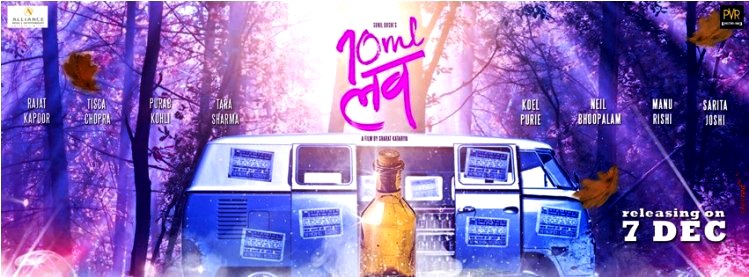By Tanul Thakur
Quite early in the movie, we find ourselves in the bedroom of an ordinary, modern couple – Neel (Purab Kohli), and Minnie (Koel Purie). We quickly learn that Neel and Minnie are in a relationship, or as it so happens – were. She leans to kiss him, but Neel rebuffs her. Neel is going to get married to someone else. And not out of resignation, but out of his own volition. He has always been in love with someone else. On the other hand, Minnie would marry him in a blink. She has no doubts about it, Neel knows this too. It’s quite a twisted, sad set up, the way how dynamics of many urban relationships are. But what’s interesting here is the mood and tone of the scene: Sharat Kataria (director) doesn’t amplify or exploit the scene’s drama just because there’s an opportune moment for it – the tone remains understated, but even then in its own way delineates the unfulfillment and sadness of Minnie quite perfectly.
In another part of the same city, Shweta (Tara Sharma) has run away from her house. She doesn’t want to get married to the guy (Neel) her dad has chosen for her. She’s in love with someone else. Her love interest is a pauper car mechanic. The guy’s apprehensions are not misplaced that this is not going to work. Meanwhile, Ghalib is a middle-aged guy who can’t stop suspecting, and hence pursuing his wife all the time. It’s difficult to say whether the wife genuinely doesn’t like him, or is just tired of Ghalib’s persistence and puerility. All the aforementioned characters convene for Neel and Shweta’s wedding. Hyperlink cinema is generally characterized by high octane tension, and ample violence. This one’s a refreshing departure by being frothy.
It’s interesting how the movie plays out so differently, pre-interval and post-interval. Till interval, Kataria looks a lot assured, and even his ambitions appear concretely discernible: the movie appears to be a take on effervescent urban love, where people’s conundrum are borne from not what they want to do, but from what they don’t want to. Kataria also achieves this quite seamlessly in the movie’s first half; there’s always an undercurrent of tension, but it is embellished by smattering of a well executed frothy tone. Also, there’s almost no overarching or stand alone tension in the first half, but even then instead of lumbering, the movie skips gleefully. We get to see Kataria’s stumbling feet for the first time when the movie’s major plot point is introduced. Maybe because that plot point does two important things to the movie — it not only changes the movie’s tone, but also its intent. What till now was a frothy, but an endearing take on urban relationships suddenly becomes a farce. Not that there’s anything wrong with being farcical, but this sudden jerky change of tone doesn’t sit well in a movie like this.
I can imagine the movie working much more smoothly had it not been an adaption. (It has been adapted from Shakespeare’s Midsummer’s Night Dream). Adaptations are difficult beasts to surmount. Not only because they not give you much elbow room as preserving the essence of the original is paramount, but you also have to resist the temptation of being lazy, and not reduce the original to a work that’s strictly a literal interpretation.
Also, what the brief farcical tone does is that it completely changes the characters, and the relationships among them. They mouth embarrassing, cringe-worthy dialogues, indulge in unfunny histrionics. After the over-stretched and mostly unfunny farce is over, the movie sobers up, turns gloomy for a short while. It’s difficult to comprehend what exactly is Kataria trying to achieve. From an adept first-half, the movie swerves into different territories, and most of the notes sound false, and superfluous. This could have been a consistently funny, slice-of-life movie. Instead, right now it’s a movie which sparkles and delights only in parts, and for the rest part, it’s merely a movie which is trying to find itself. To its credit, it never slips up that incompetently even during its unsure moments, but then that’s just a minor consolation.
[The author is an award-winning film journalist and critic for The Wire. Read more of his work on his blog here]
Watch the whole film here:






Leave A Comment
You must be logged in to post a comment.